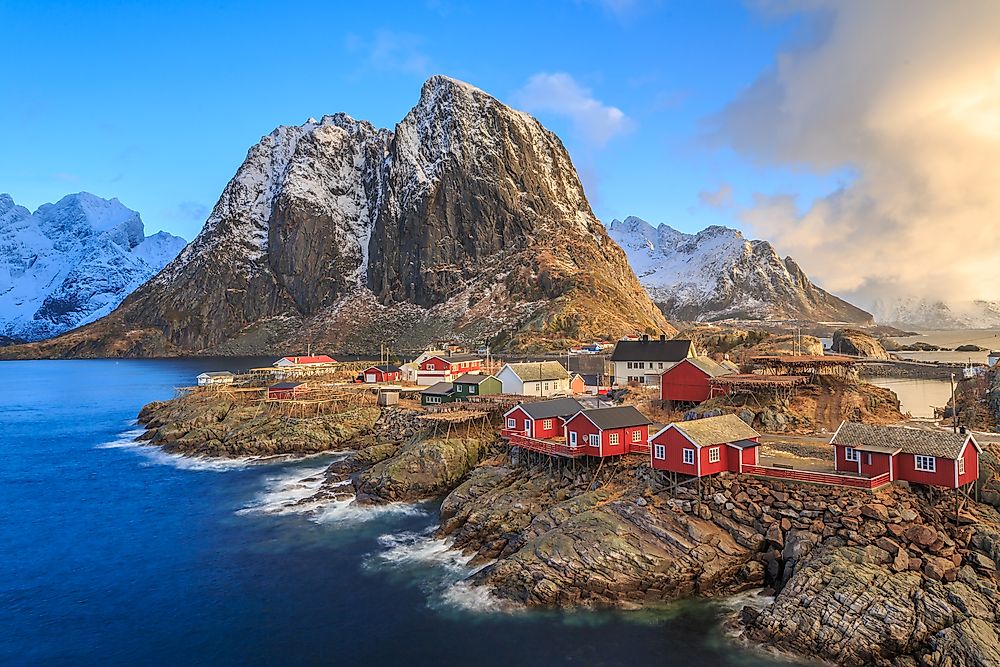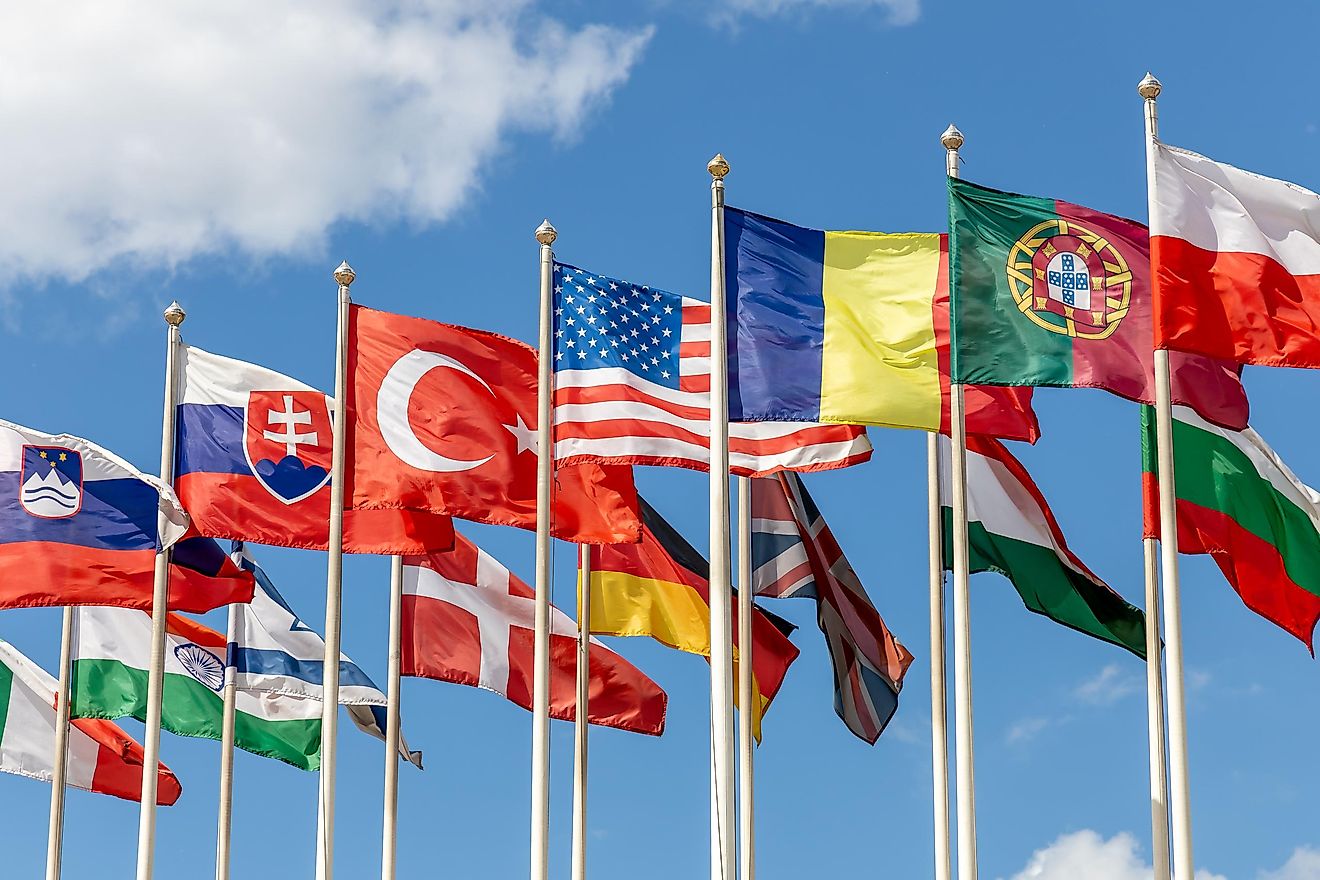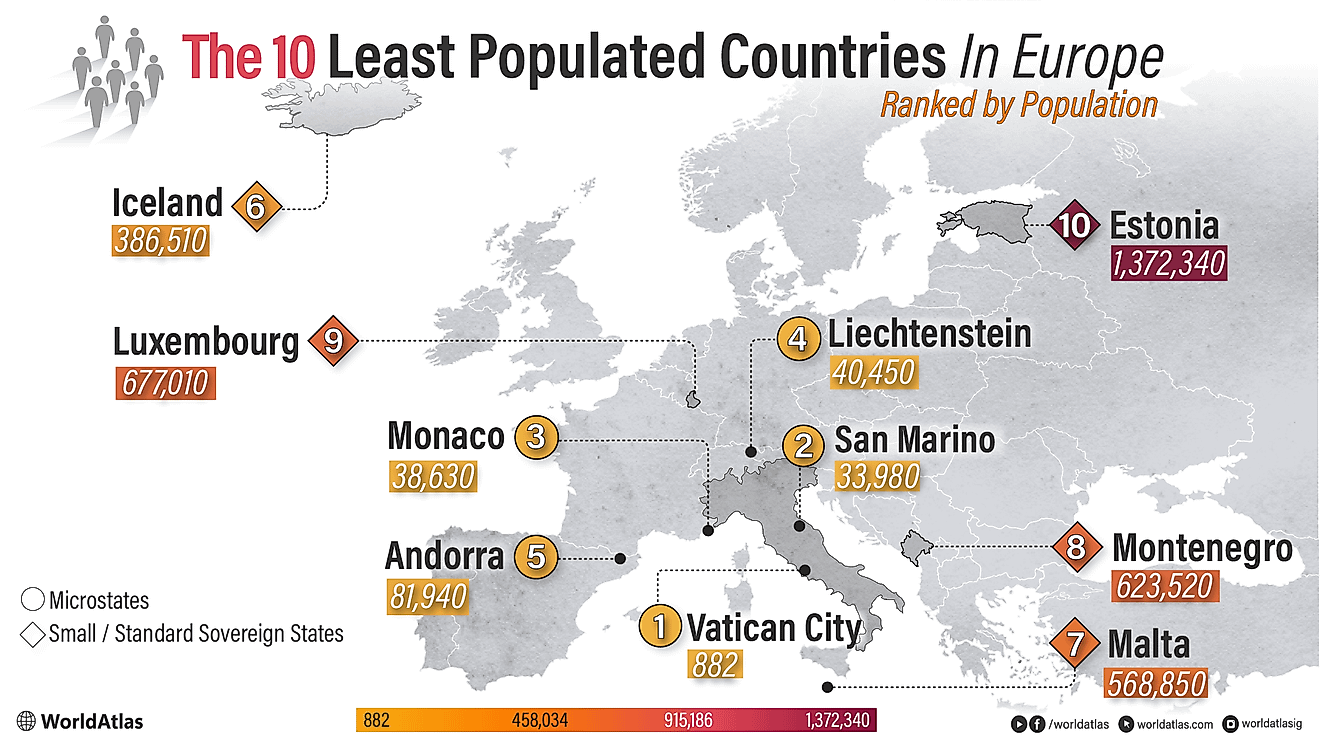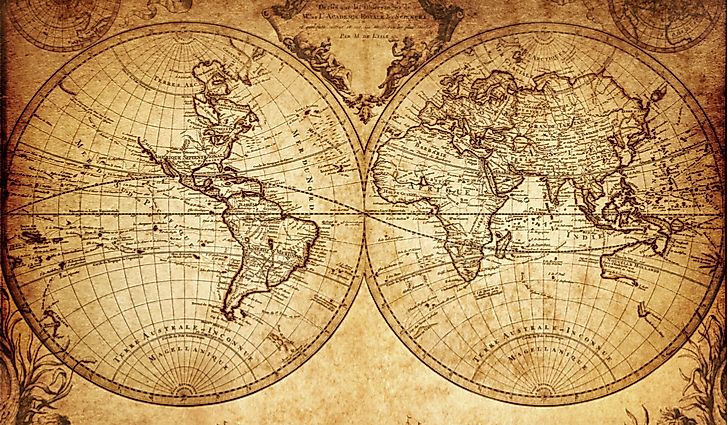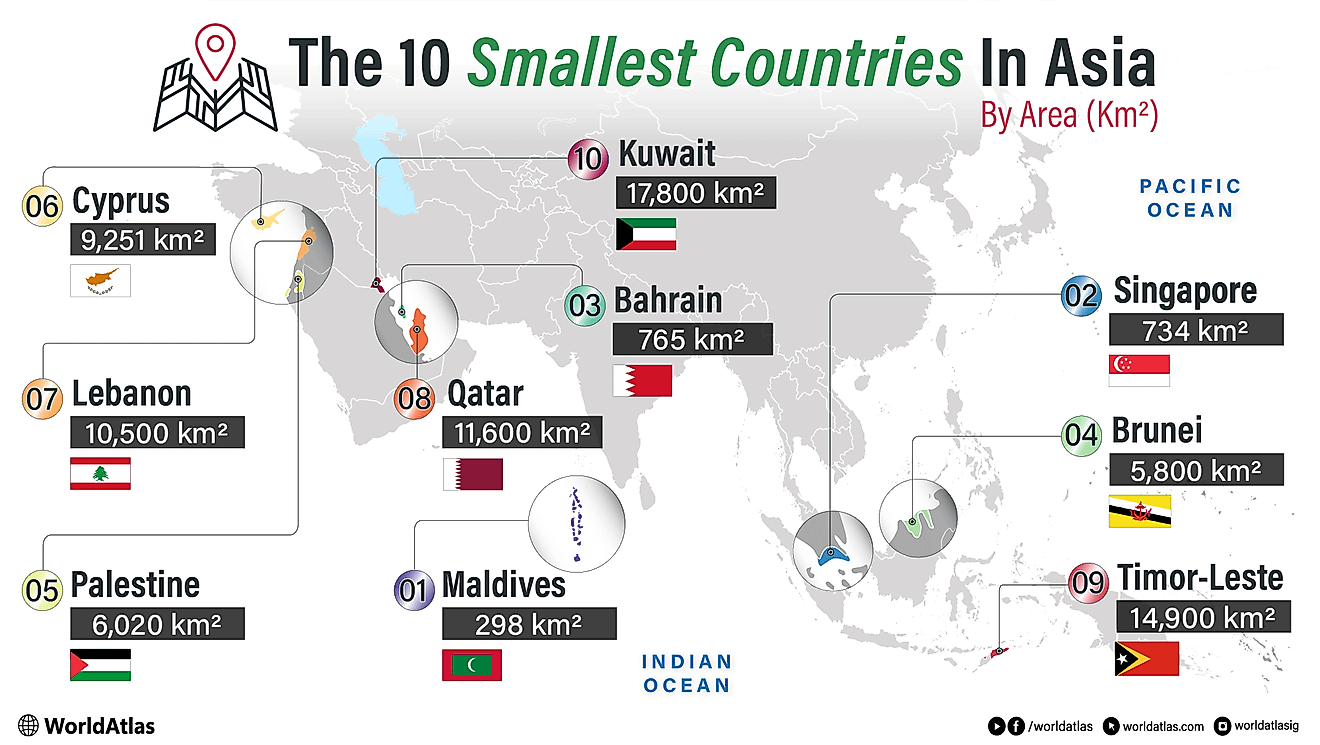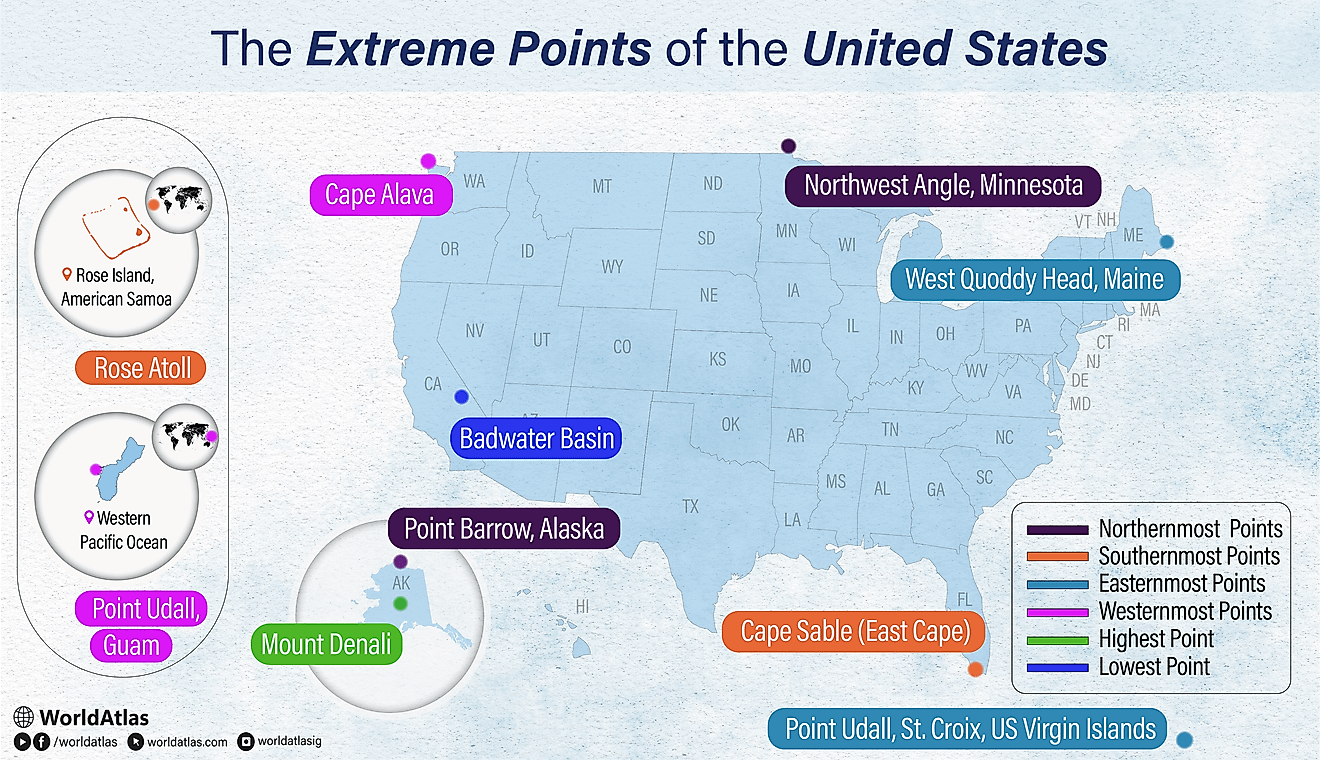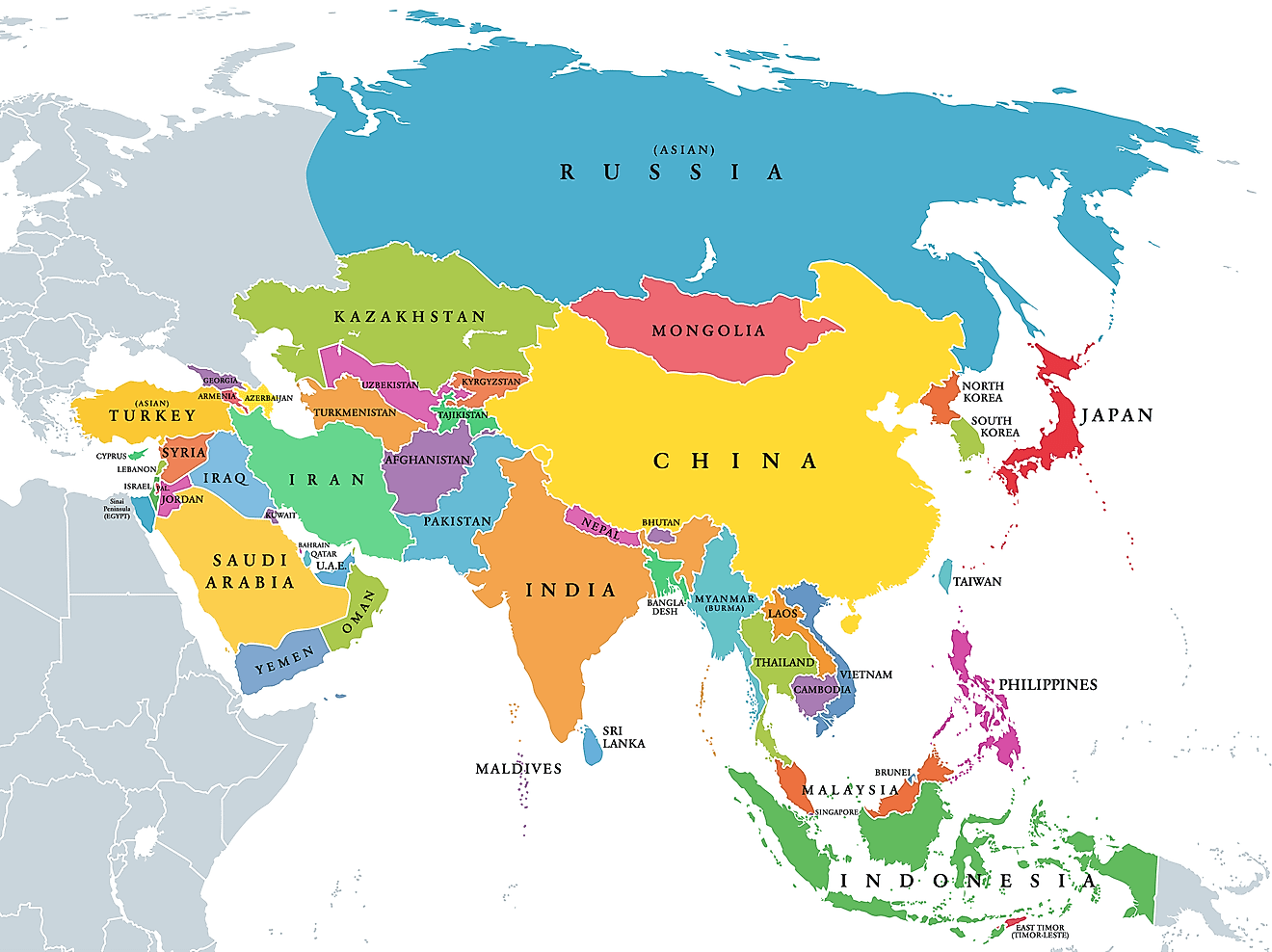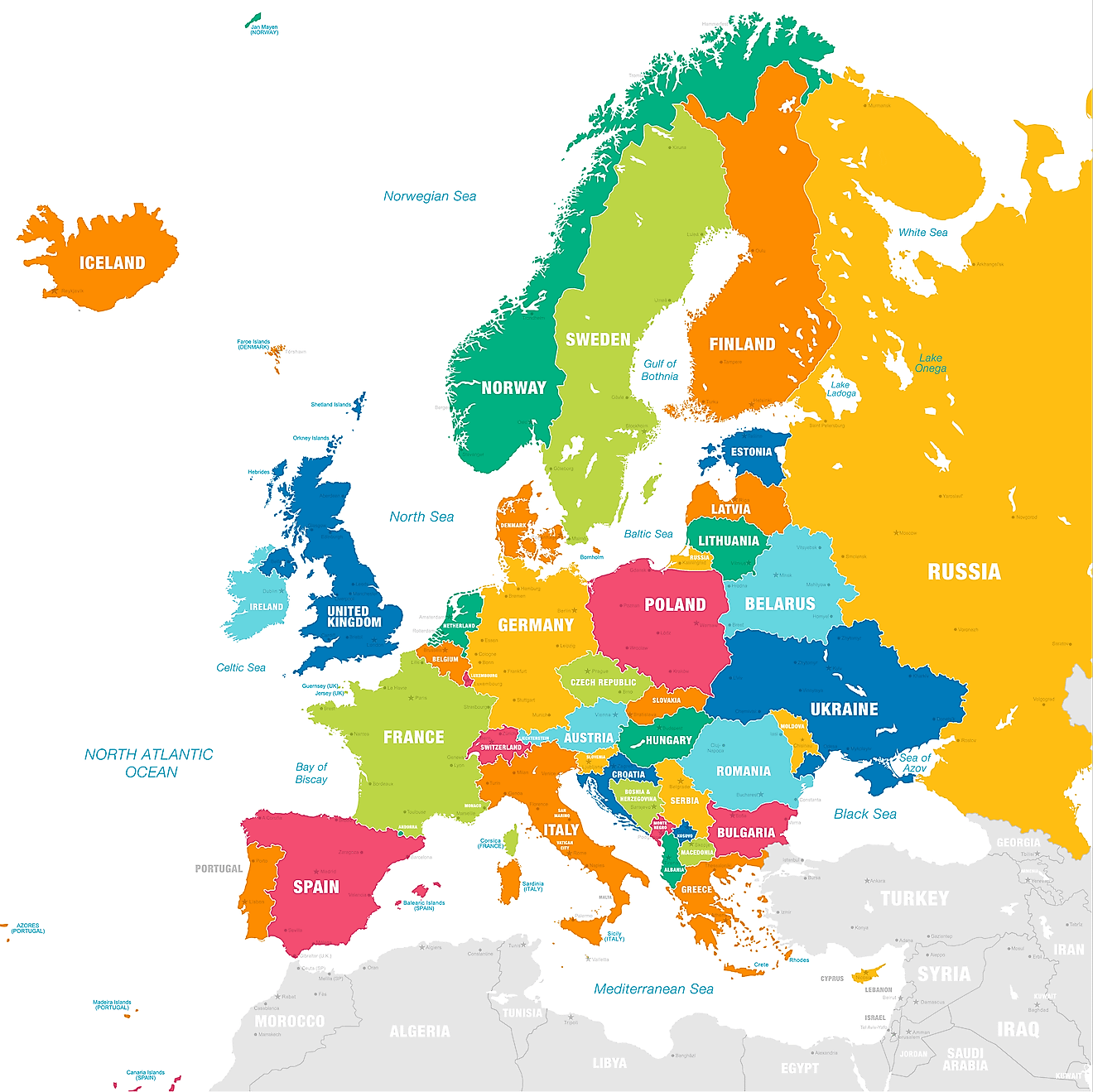
European Countries That Are Not Members Of The European Union
The European Union is commonly seen as the central force for political and economic cooperation in Europe, but not every country on the continent is part of it. Some have chosen not to join, others have tried and stalled, while a few remain firmly outside its borders for political or legal reasons.
As of May 2025, the EU’s official candidate roster comprises nine non-member states: Albania, Bosnia and Herzegovina, Georgia, Moldova, Montenegro, North Macedonia, Serbia, Türkiye, and Ukraine. Each is at a different stage of the painstaking accession track. However, the following European countries are neither EU members nor official candidates: Switzerland, the United Kingdom, Russia, Norway, Monaco, Liechtenstein, Iceland, Belarus, Azerbaijan, and Armenia— which began its internal accession-approval process in early 2025—along with Vatican City, Andorra, and San Marino.
What is the European Union?
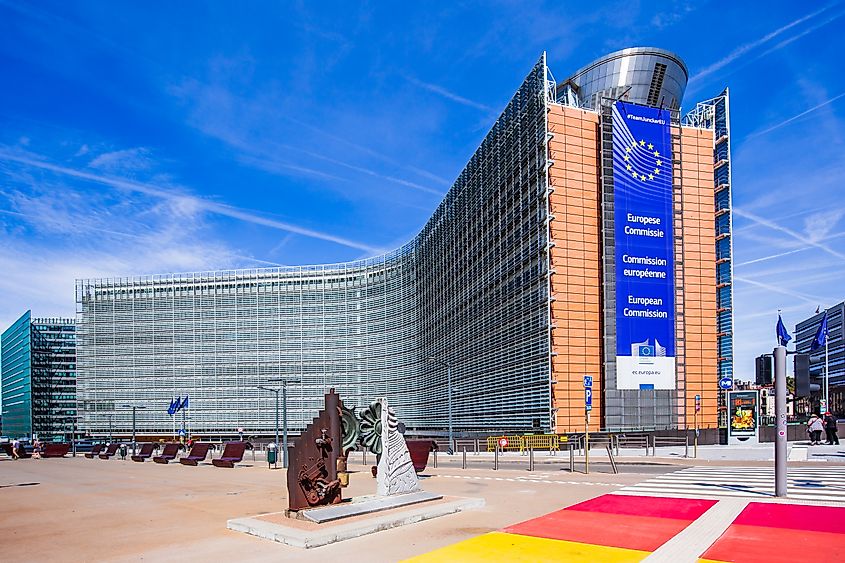
The European Union (EU) is mainly a political and economic union, headquartered in Brussels, currently made up of 27 European countries. It was established to promote integration and help ensure peace, stability, and economic cooperation following the devastation of two world wars in the first half of the 20th century. Membership is voluntary but involves meeting strict criteria.
The union operates through a standardized system of laws that apply in all member states, enabling the free movement of people, goods, services, and capital, for the most part, within its internal markets. Furthermore, it maintains policies on agriculture, regional development, and more. The EU also coordinates foreign policy and environmental regulation, though member countries retain sovereignty in areas like defense and taxation of their citizens. And although the EU even has its own currency, the euro, not all member states choose to use it.
Various institutions, such as the European Commission, European Council, and European Parliament, help manage and implement policies effectively.
Eligibility and Requirements to be in the EU
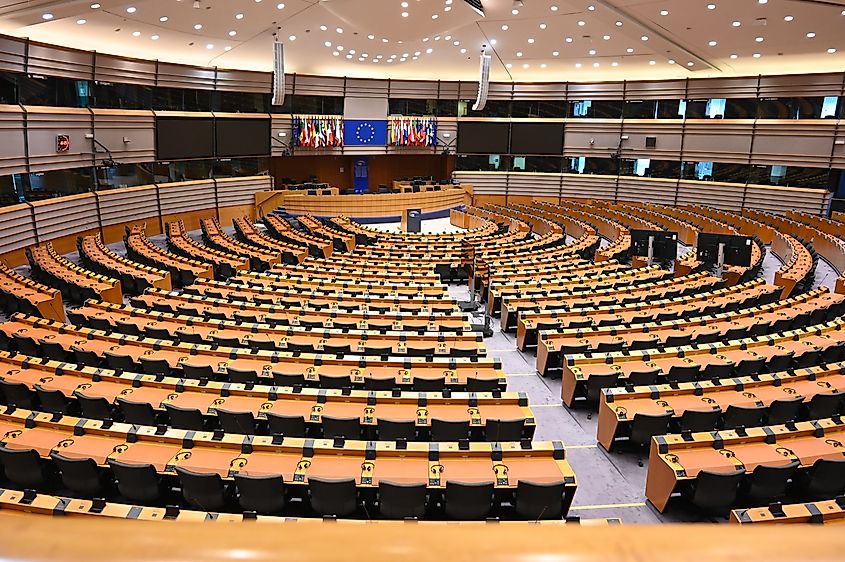
To join the European Union, a country must meet what is known as the Copenhagen criteria, a series of requirements officially established in 1993 (although what was known as the "European Parliamentary Assembly," a forerunner to the EU, had already existed since 1958). These include broader rules for entry, such as having stable institutions that guarantee democracy, the rule of law, human rights, and respect for minorities. An applicant must also have an adequately functioning market economy (in relation to other countries in the European Union) and the ability to cope with competitive pressures within the EU.
In addition, it must adopt the EU’s body of laws, known as the "acquis communautaire," which covers legal areas such as competition policy, environmental standards, consumer protection, and more. Of course, applicants are expected to align their administrative and judicial systems to enforce EU rules effectively.
The process typically involves years of reforms, negotiations, and progress reviews, and even then, some countries still don't make the cut. Final approval requires unanimous agreement from all existing member states, as well as ratification by the applicant country.
While meeting the formal requirements is essential, unique political considerations, such as regional stability (is a war or serious unrest going on?) or bilateral disputes with other European countries, can also influence the pace and outcome of eligibility.
Current Candidates
Currently, there are 10 nations that are officially vying for a spot in the EU, 9 of which have achieved candidate status. A variety of factors are either slowing or speeding up their ability to become full members, ranging from wars to disputed elections and other social/geopolitical concerns. Let's take a deeper look at a few of the most prominent candidates at this time.
Ukraine
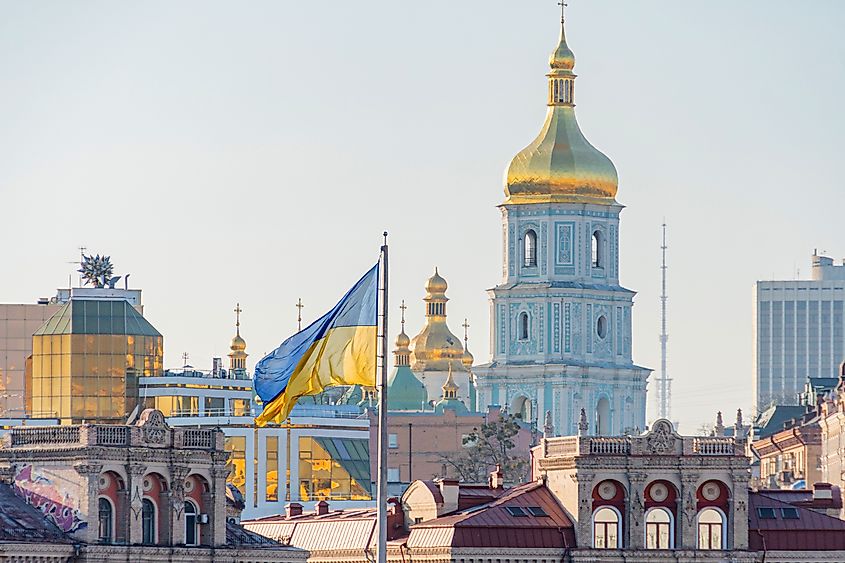
Ukraine formally opened accession talks with the European Union in June 2024 (with accession discussions beginning the year prior), a major milestone in its path toward membership. The country actually applied for EU membership in February 2022, just days after Russia invaded its mainland borders, and was granted candidate status later that year.
Despite the ongoing conflict, Ukraine has since pursued significant institutional reforms in order to conform to the EU's requirements. These include efforts to improve judicial independence, fight corruption, and strengthen protections for national minorities. Subsequently, the European Commission has acknowledged Ukraine’s progress in meeting key criteria, although concerns about the country's stability still remain. In addition to this, historic relations and disputed treaties with Russia are further complicating things for Ukrainians at the moment.
Still, EU officials have indicated that if Ukraine maintains its current pace of reform, membership by the end of the decade is possible. Overall, this eastern European country's pursuit of EU integration reflects its ultimate goal of anchoring itself within the broader European political, economic, and legal frameworks, ensuring its future in the face of current and future threats to its sovereignty.
Türkiye
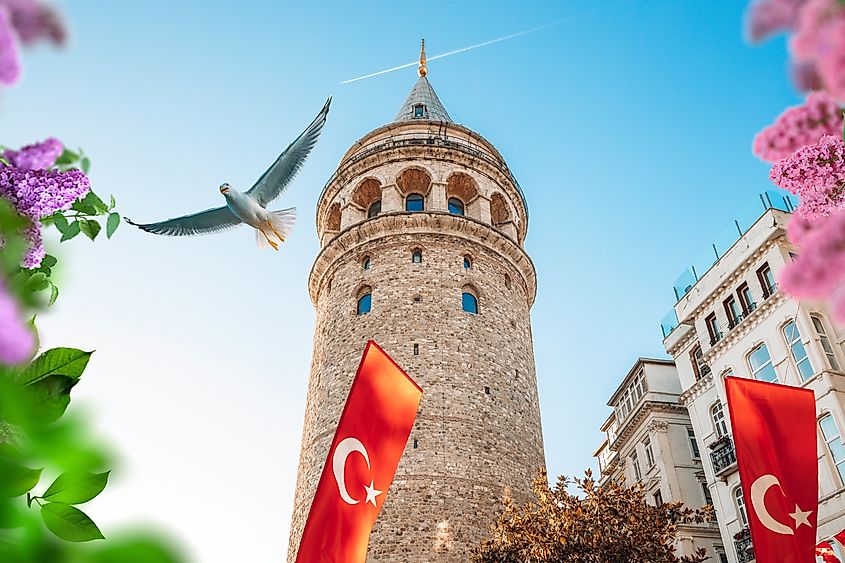
Türkiye has been an official candidate for European Union membership since 1999, with accession negotiations beginning in late 2005. However, the process has largely stalled due to continuing human rights issues within the country, now making it an example of one of the longest membership processes to date.
Of the 35 negotiation chapters required for EU membership, only 16 have been opened. Political developments in Türkiye since its application, particularly concerns about democratic integrity, press freedom, and judicial independence, have led the EU to effectively freeze the talks since 2019.
Even with all the challenges, Türkiye continues to express interest in revitalizing its EU candidacy. For example, recent diplomatic efforts, including calls to modernize and adjust the EU-Türkiye customs union, and discussions about visa liberalization, reflect an enduring interest in forging a path toward membership.
Georgia
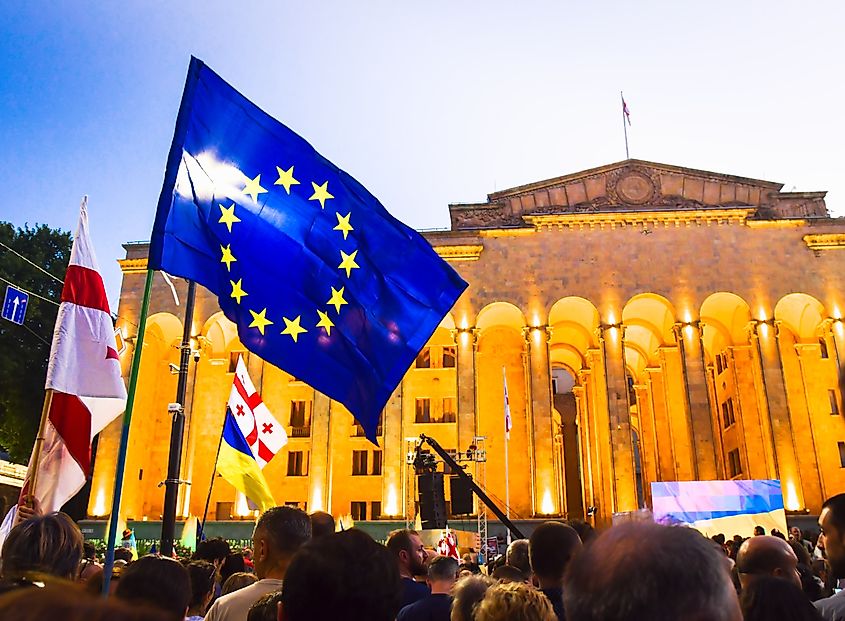
Georgia applied for European Union membership in March 2022 and was granted candidate status soon after in December 2023, contingent upon implementing key democratic and institutional reforms. By mid-2024, the accession process was halted due to concerns over continuing political instability, mainly in the form of newly introduced, seemingly authoritarian laws that did not mesh with the EU's democratic values, along with a heavily disputed parliamentary election at the time.
In November 2024, Prime Minister Irakli Kobakhidze announced a suspension of EU accession talks until 2028, citing tensions with Brussels on the matter. This decision subsequently sparked widespread domestic protests in Georgia, highlighting the country's strong public support for EU integration.
European Countries That Are Currently Candidates To Join The EU
| Country | Candidate status granted |
|---|---|
| Albania | 24 Jun 2014 |
| Bosnia and Herzegovina | 15 Dec 2022 |
| Georgia | 14 Dec 2023 |
| Moldova | 23 Jun 2022 |
| Montenegro | 17 Dec 2010 |
| North Macedonia | 16 Dec 2005 |
| Serbia | 01 Mar 2012 |
| Türkiye | 11 Dec 1999 |
| Ukraine | 23 Jun 2022 |
| *Kosovo (potential candidate) | TBA |
Countries that Have Left the EU
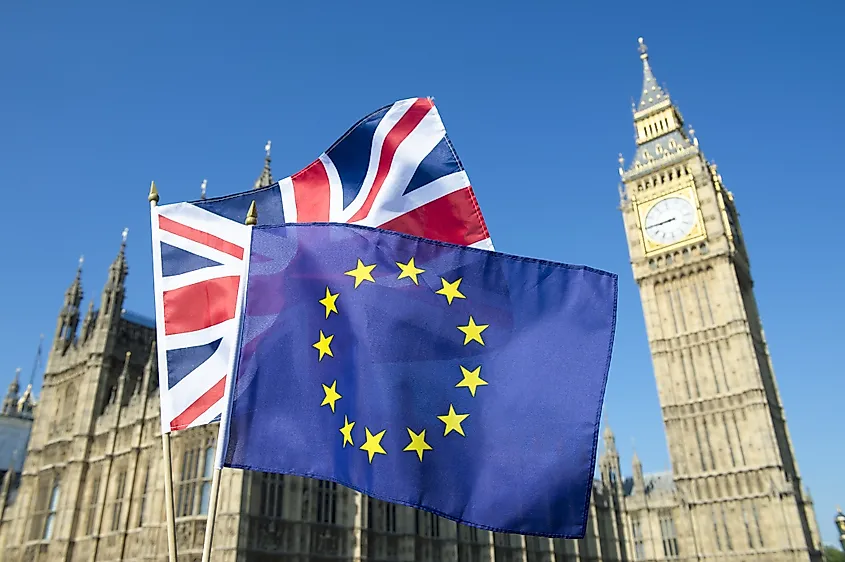
Given the daunting nature of actually getting into the European Union, you might be surprised to hear that one member has voluntarily left. As of 2025, the United Kingdom is the only country to have willingly dropped its membership, an event that is popularly called "Brexit." The decision followed a 2016 referendum in which 52% voted to leave, and the UK officially exited the EU on January 31, 2020, ending 47 years of membership.
A transition period followed, during which the UK and EU negotiated future trade and cooperation terms after their withdrawal. That period concluded on December 31, 2020, with the EU-UK Trade and Cooperation Agreement taking effect.
Brexit marked a major political and economic shift on the European continent and the greater world beyond, impacting trade, immigration, and regulatory alignment with what was once one of the EU's most influential members. While the UK gained a new level of control over its laws and borders, the decision was highly controversial, introducing new complexities in areas like customs and travel for its citizens and visitors alike.
European Countries That Are Not In the EU And Are Not Candidates
- Switzerland
- United Kingdom
- Russia
- Norway
- Monaco
- Liechtenstein
- Iceland
- Belarus
- Azerbaijan
- Armenia (began its internal process for accession approval in early 2025)
- Vatican City
- Andorra
- San Marino
Why Some Countries Don't Want or Don't Get Admission
As you can see, several European countries are neither EU members nor official candidates, either by choice or due to political and institutional barriers. This doesn't necessarily mean they are completely separated from the union. Each of these nations illustrates a different model of European cooperation (or antagonism) that falls outside the framework of EU accession.
For example, Norway, Iceland, and Liechtenstein participate in the European Economic Area (EEA), giving them access to the EU single market without full membership. These countries meet the EU's standards but have opted out of membership to preserve greater national autonomy. Switzerland, while not part of the EEA, has a series of bilateral agreements with the EU and chooses to maintain its independence. Similarly, microstates like Andorra, Monaco, and San Marino maintain their own unique arrangements with the EU, often tied to trade or currency, but again, are not on a path toward full membership.
On the other hand, countries such as Belarus and Russia are not considered for membership due to their governance being considered authoritarian and/or inhumane, and current conflicts with other European nations, furthering strained relations with the EU.
European Countries That Are Not In The EU
| Country | Status |
|---|---|
| Bosnia and Herzegovina | Candidate |
| Georgia | Candidate |
| Moldova | Candidate |
| Montenegro | Candidate |
| North Macedonia | Candidate |
| Serbia | Candidate |
| Türkiye | Candidate |
| Ukraine | Candidate |
| Kosovo | Potential Candidate |
| Switzerland | Not in the EU |
| United Kingdom | Exited in 2020 |
| Russia | Not in the EU |
| Norway | Not in the EU |
| Monaco | Not in the EU |
| Liechtenstein | Not in the EU |
| Iceland | Not in the EU |
| Belarus | Not in the EU |
| Azerbaijan | Not in the EU |
| Armenia | Not in the EU |
| Vatican City | Not in the EU |
| Andorra | Not in the EU |
| San Marino | Not in the EU |

